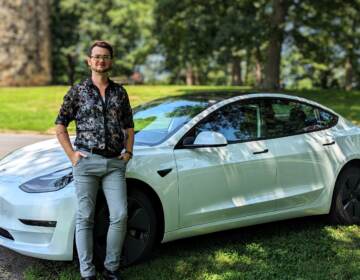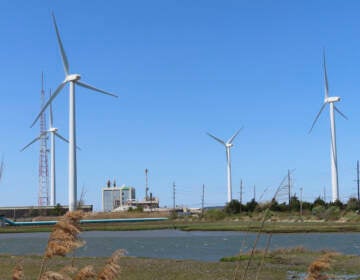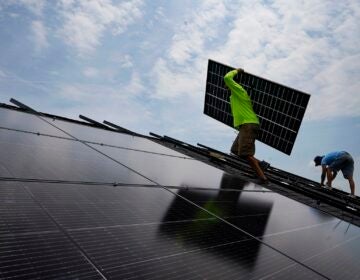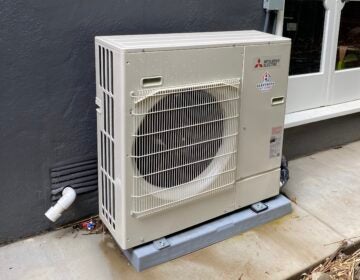KOP startup looks to build electric vehicle infrastructure nationwide
The clean technology startup that builds wireless charging devices for large electric vehicles opened a new research and development laboratory in King of Prussia.
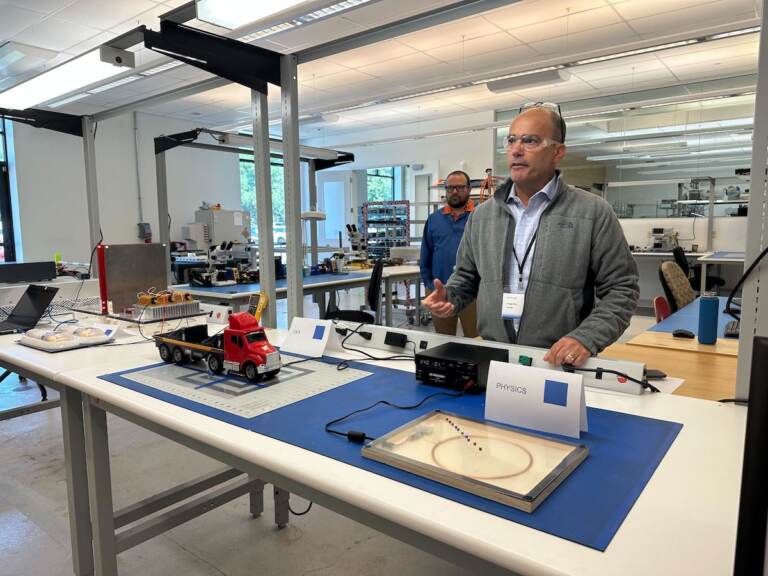
Jorge Rivé, a principal electrical engineer at InductEV, demonstrates the underlying concept of the company's wireless charging system. (Kristen Mosbrucker-Garza/WHYY)
This story is part of the WHYY News Climate Desk, bringing you news and solutions for our changing region.
From the Poconos to the Jersey Shore to the mouth of the Delaware Bay, what do you want to know about climate change? What would you like us to cover? Get in touch.
A homegrown technology startup in the Philadelphia suburbs has ambitious plans to build infrastructure nationwide to charge large electric vehicles wirelessly.
InductEV, formerly known as Momentum Dynamics, opened a research and development center at its 50,000-square-foot headquarters in King of Prussia.
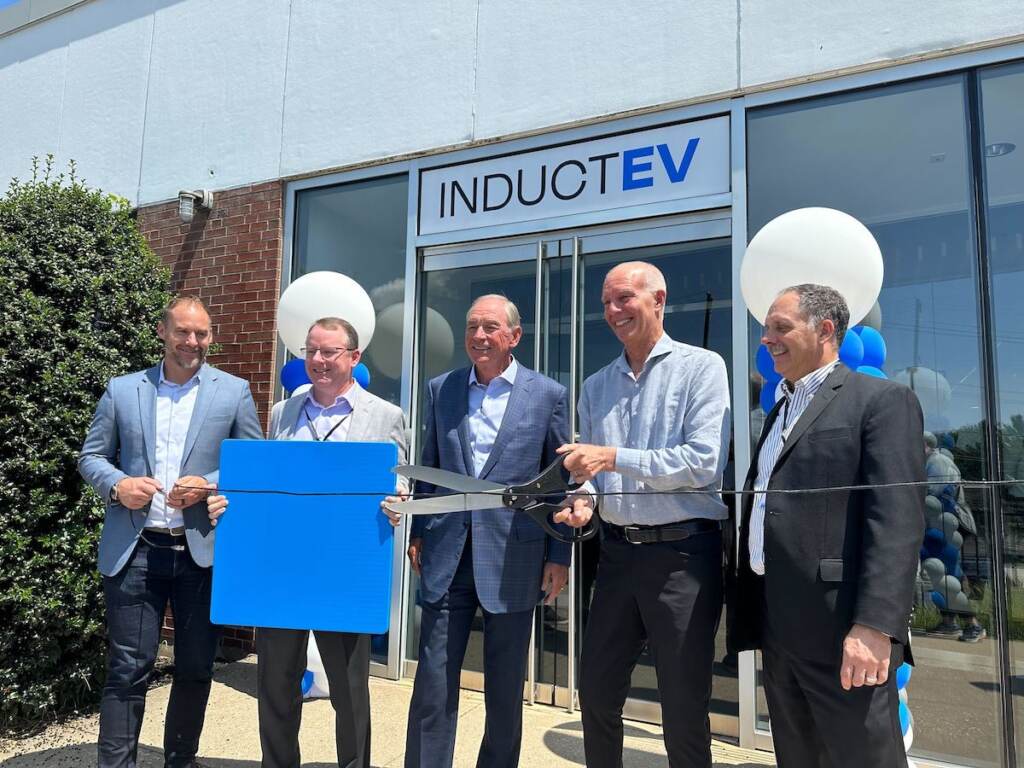
For the past decade, the startup has been selling wireless charging devices to vehicle fleet owners from manufacturers to public transportation operators. Its clients range from Volvo to Martha’s Vineyard Transit Authority.
Founded in 2009, it has grown to 65 employees. Its technology is already being used across 20 different locations across North America and Europe — and executives look to launch in Asia next.
InductEV’s technology uses a magnetic transmitter and receptor that’s 7,500 times more powerful than a smartphone wireless charger. There’s one device attached to the bottom of a large electric vehicle like a bus or truck and another device embedded in the pavement.
“It allows us to transmit electrons to the vehicle so the battery can receive it,” said Barry Libert, CEO and board chairman of InductEV. “No different than your phone.”
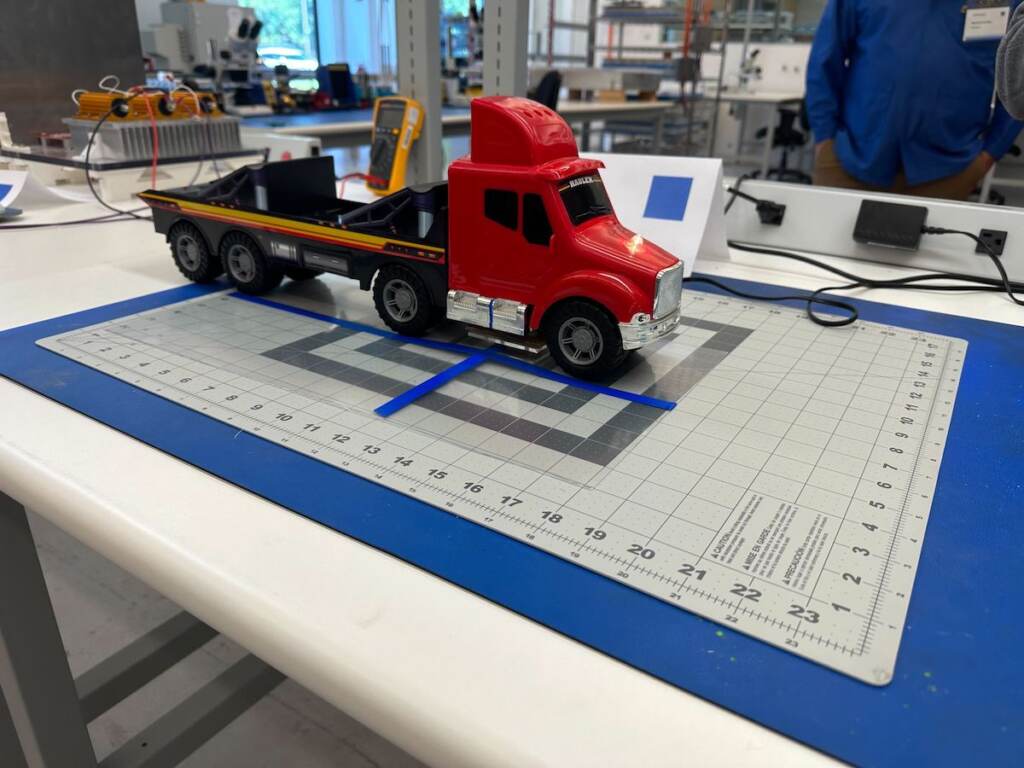
The wireless charging pad doesn’t require buses to stop either, instead vehicles can graze on electricity during a regular route which is a boon to public transit operators.
“What they’re finding is that they want to run the routes continuously in a closed loop,” Libert said. “They don’t want to [stop] to plug those vehicles in because they are expensive.”
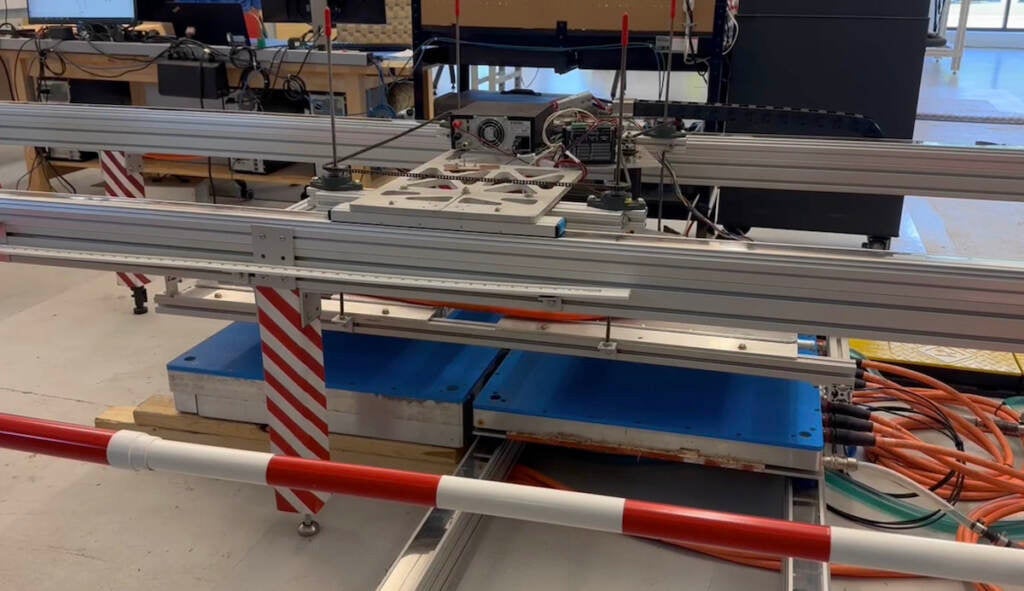
InductEV struck a strategic partnership deal with ChargePoint, which typically operates wired electric vehicle charging stations across the country to expand adoption of wireless charging stations.
While the company has raised more than $100 million from investors so far and closed another undisclosed fundraising round recently, there are plans to expand even more — especially to work on infrastructure like microgrids. Beyond the devices, the company sells route optimization software leveraging artificial intelligence for fleet operators to reduce costs.
“We’re about to go to a very large round for infrastructure financing,” he said. “Instead of wireless carriers for your phone, think about wireless carriers for your energy. So we’re building out wireless microgrids across the nation.”
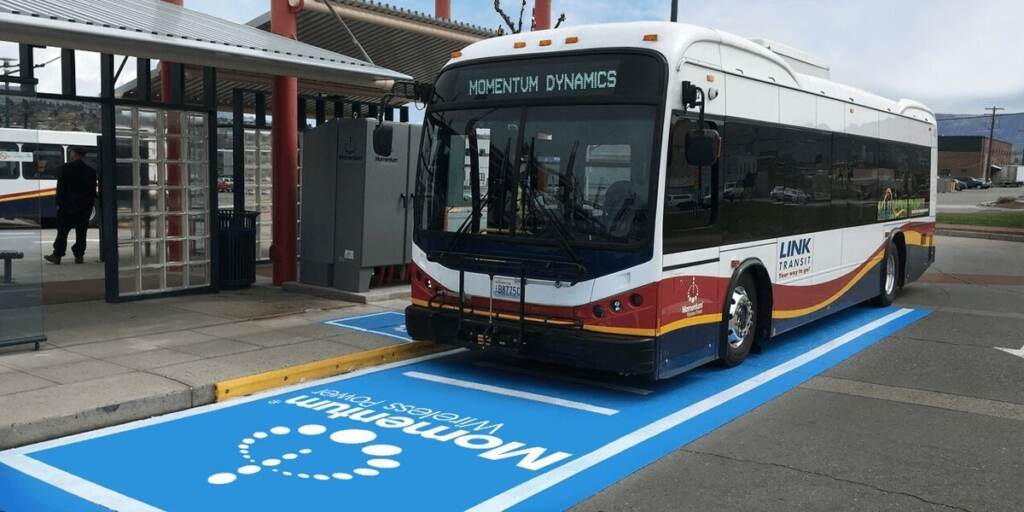
There’s been a push to increase the electric vehicle infrastructure across the U.S. as states commit to curbing contributions to greenhouse gasses from traffic — especially trucks and buses.
Michigan U.S. Rep. Haley Stevens introduced legislation this year to create a $250 million wireless electric vehicle charging station grant program to develop projects on roadways, parking lots, bus routes, and airports.

Saturdays just got more interesting.
WHYY is your source for fact-based, in-depth journalism and information. As a nonprofit organization, we rely on financial support from readers like you. Please give today.


